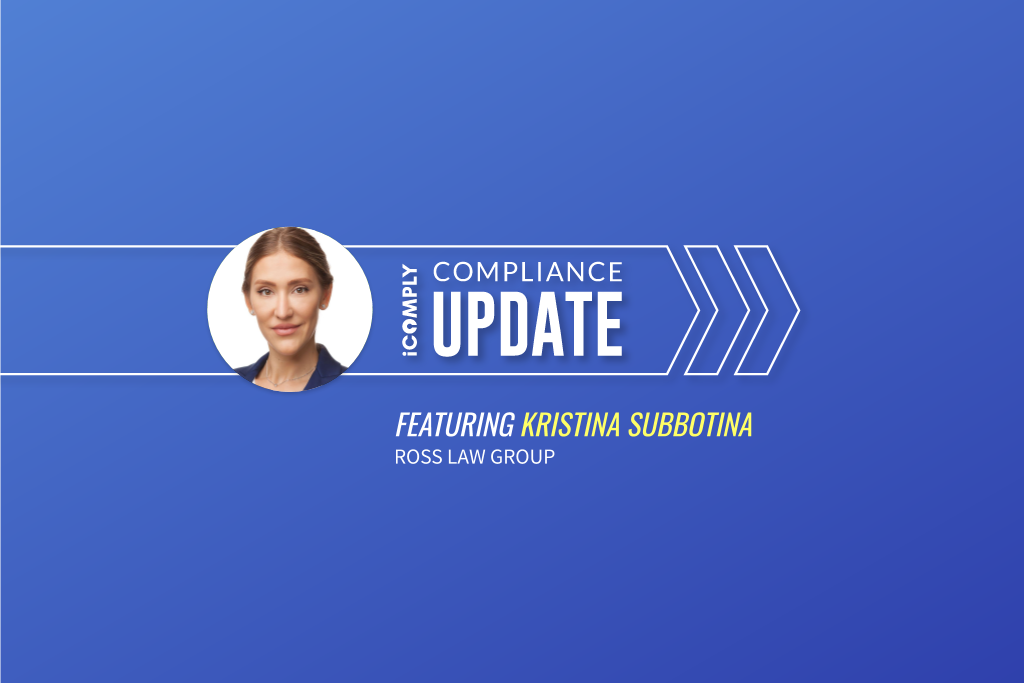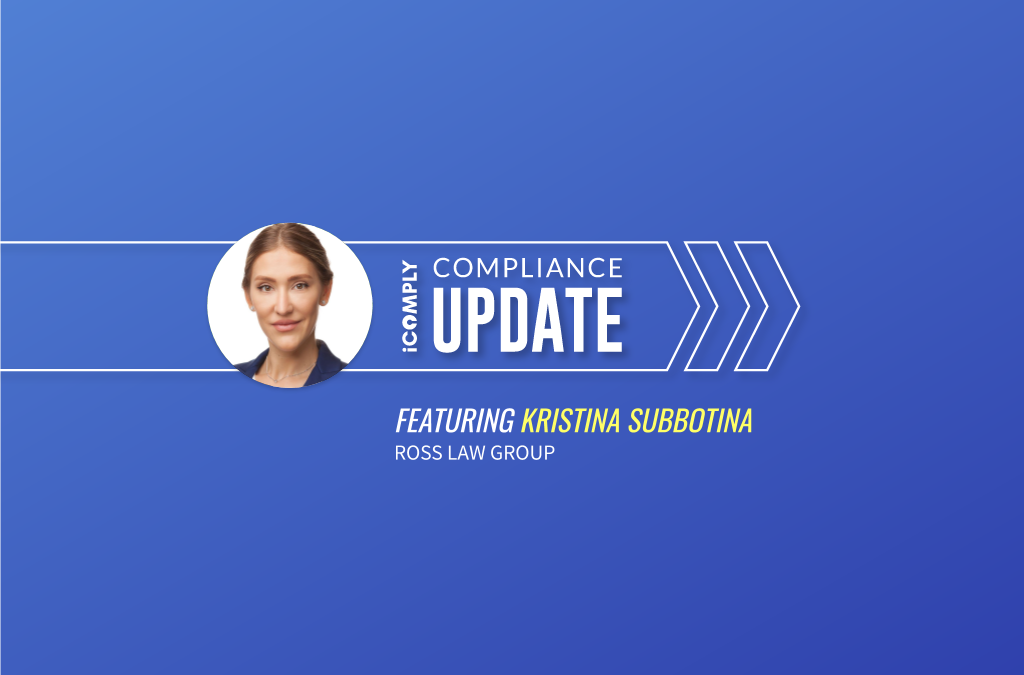SEC Charges Wind Turbine Company and Individuals With Defrauding Investors

Kristina Subbotina of Ross Law Group reviews the SEC’s recent action against the wind turbine company and individuals
What happened?
The SEC filed a complaint against Thunderbird Power Corp., a wind turbine company (the “Company”) and its three affiliated individuals (together with the Company, the “Defendants”), Thunderbird’s CEO Richard Hinds, former Thunderbird president Anthony Goldstein, and consultant John Alexander “Lex” van Arem. The SEC alleged that the Defendants defrauded investors in a US $1.9 million unregistered offer and sale of the Company’s stock.
Specifically, the SEC stated that the Defendants made false and misleading statements through the Company’s press releases, marketing materials, offering materials, and a YouTube video. For example, the press releases and the YouTube video mislead investors by stating that Siemens had tested the Company’s wind turbine product and confirmed its efficiency and production ability. The SEC alleged that the Company’s offering memorandum contained material misrepresentations and omissions about the Company’s operations, including how the Company would use investor proceeds.
Additionally, all the Defendants allegedly misappropriated 40% of the investor funds to enrich themselves and to compensate sales agents.
What types of stakeholders will be impacted by this?
Private companies raising funds in private offerings, and its officers and even consultants. Investors should also be aware of the continued existence of fraudulent investment schemes.
Why does this matter?
This enforcement action brings attention to the continued existence of fraudulent investment schemes, and the very real risk of illegal offerings being conducted at present. It should heighten both regulatory and investor awareness of the prevalence of this issue.
Also, the SEC continues its efforts to discourage issuers from defrauding investors and demonstrates that even relatively small offerings (under $2 million) are under its purview.
Does this change create new risks for industry stakeholders? If so, what should they be looking out for?
In general, the SEC’s complaint serves as a reminder to private companies to comply with the U.S. securities laws and regulations when offering and selling securities, specifically:
- Provide correct and complete information in the company’s offering materials, including offering memorandum and subscription agreement;
- Ensure the information provided in marketing materials (i.e., presentations, business plans, posts, and videos on social media platforms) should be consistent with the information in the offering materials; and
- Register the offer and sale of the securities under the U.S. Securities Act of 1933, as amended, unless the company qualifies for an exemption from the registration requirements.
How does this impact compliance teams, and what can they do to stay ahead of the regulatory requirements?
Compliance teams should make sure that their company’s employees and consultants, including sales representatives, communicate to investors only information consistent with the offering materials. A compliance team, for example, may want to review emails and phone communications between the sales representatives and investors to ensure the former do not mislead the latter.
What can management teams or boards of directors do to stay ahead of these changes?
Management teams or boards of directors can be reminded to continue directing strong efforts to ensure compliance with the U.S. federal and states securities laws and regulations:
- Sales representatives receiving compensation in the form of a percentage of the investor funds raised must be registered broker-dealers. You can verify a person’s broker-dealer registration on the FINRA’s website: https://brokercheck.finra.org/.
- For a compliant unregistered offering of securities, Form D must be filed within 10 days from the sale of those securities, and blue sky filings must be made in each state where the investors reside.
- If the issuer conducts general solicitation, all of its investors must be accredited, and the accredited investor status must be verified internally or through a third-party provider
What can service providers do to help their clients stay ahead of these changes?
Service providers should remind their clients (i) to provide the complete and correct information in the offering and marketing materials, and (ii) to properly qualify for an exemption from the registration requirements.
Author — KRISTINA SUBBOTINA
Kristina Subbotina is a corporate and securities attorney with Ross Law Group PLLC representing investment funds and emerging growth companies throughout their lifecycle, including formation, financing rounds, and exit strategies.
learn more
Is your AML compliance too expensive, time-consuming, or ineffective?
iComply enables financial services providers to reduce costs, risk, and complexity and improve staff capacity, effectiveness, and customer experience.
Request a demo today.
KYC for Gaming and Gambling: Ensuring compliance and preventing fraud in the gaming industry.
The gaming and gambling industry faces unique challenges in ensuring compliance and preventing fraud. Know Your Customer (KYC) processes are essential in this sector to verify the identities of players, detect fraudulent...
KYC for Insurance: How Insurance Companies Use KYC to Verify Policyholders
Insurance companies handle significant financial transactions and sensitive personal information, making robust Know Your Customer (KYC) processes crucial. Effective KYC practices help verify the identities of policyholders,...
KYC for Banking: Specific KYC requirements and practices in the banking sector.
The banking sector is at the forefront of KYC compliance due to the high risk of money laundering and financial fraud. Effective KYC practices in banking are essential for ensuring compliance, protecting the institution, and...




